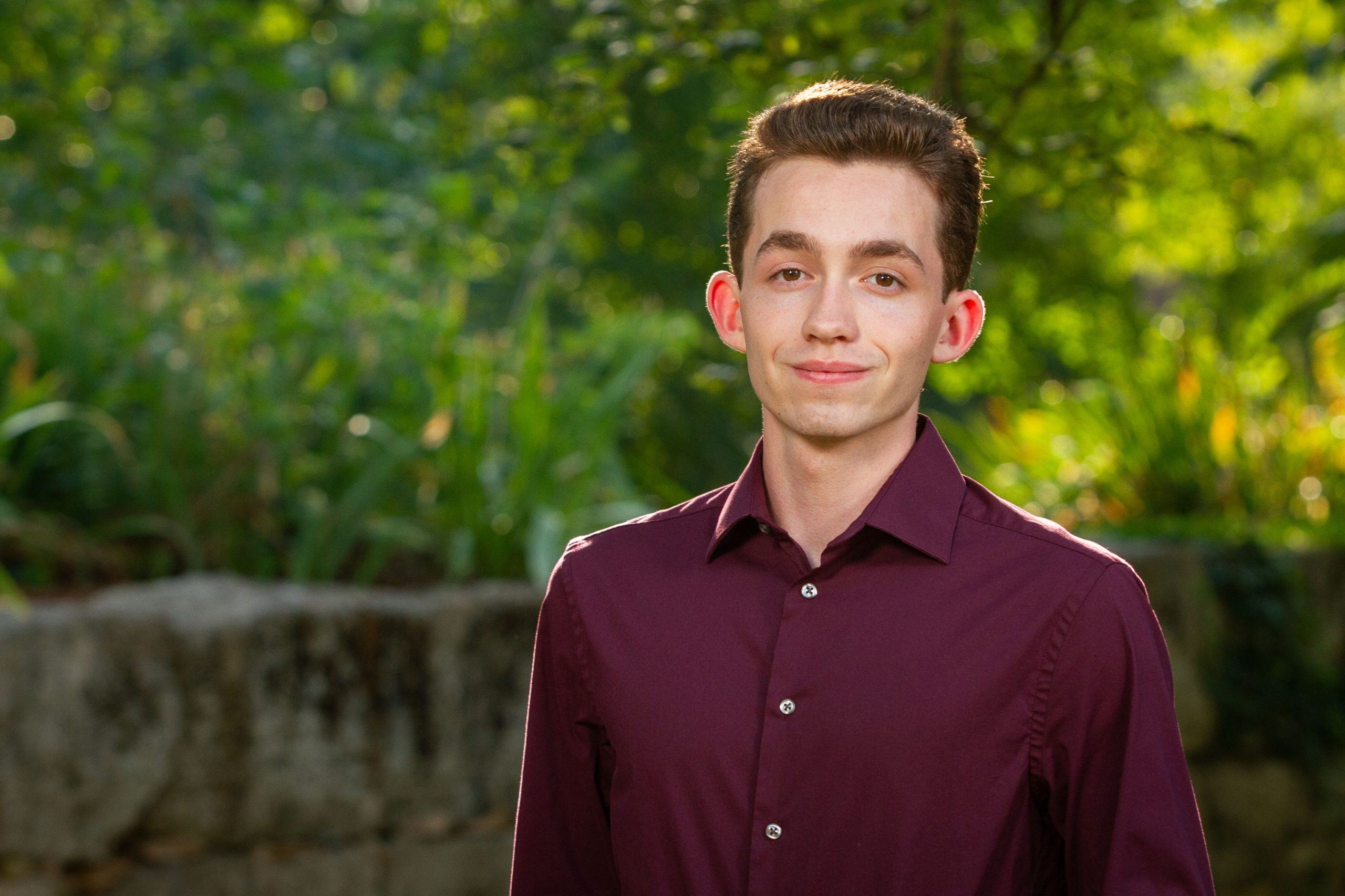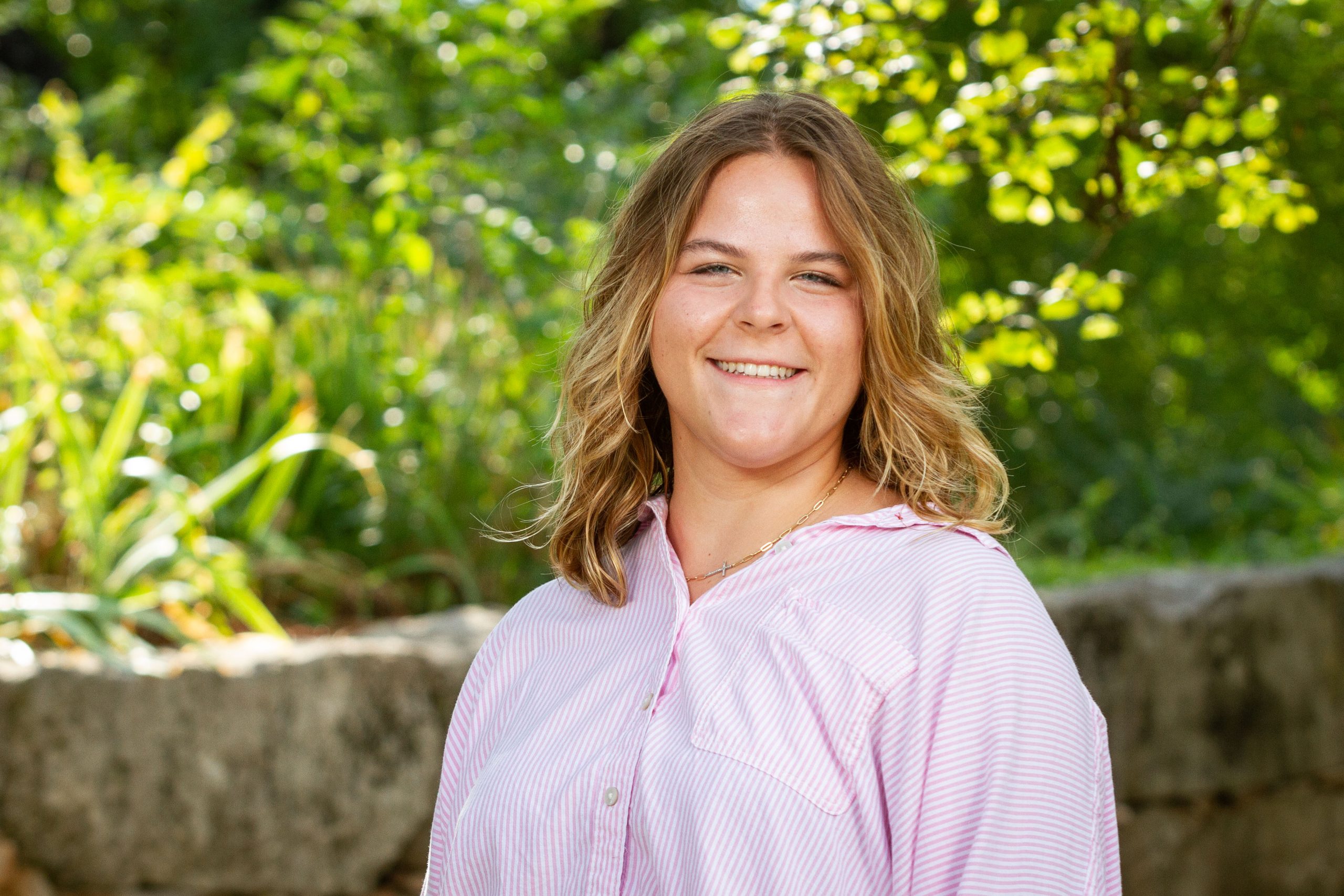Rachel Bowman Selected for Department of Defense SMART Scholarship
April 30, 2009 | Academics, News, Student Success | No Comments

Rachel Bowman, a Carol Martin Gatton Academy of Mathematics and Science in Kentucky at WKU student from Murray, has been named a recipient of the Department of Defense (DoD) SMART Scholarship, a nationally-competitive award valued at over $250,000.
The SMART Scholarship (Science, Mathematics, and Research for Transformation scholarship) was established in 2006 by the Department of Defense to support undergraduate and graduate students pursuing degrees in Science, Technology, Engineering, and Mathematics fields and to increase the number of civilian scientists and engineers doing research in Department of Defense laboratories.
Bowman is the first WKU student to be awarded the SMART Scholarship.
As a recipient of the scholarship, Bowman’s award will pay for full tuition and books at the Massachusetts Institute of Technology, where she has chosen to pursue her Bachelor’s degree in Chemical Engineering upon graduation from the Gatton Academy in May. Also included in the award is a monthly living stipend, annual summer internships at a Department of Defense laboratory, and a guaranteed career position upon graduation with her baccalaureate degree.
“I’m excited to receive the SMART scholarship because it allows me to focus on my studies at MIT while also getting a hands-on learning experience during the summer as an intern with the DoD,” Bowman said. “Once I graduate, I will be able to give back to the country while also pursuing an area I am truly passionate about.”
Bowman’s research with the Department of Defense will center on the creation of new, sustainable energy sources.
Bowman’s has conducted two separate research projects as a student at the Gatton Academy at WKU. Her first project was overseen by Dr. Eric Conte of the Department of Chemistry. According to Conte, Bowman worked on the preparation of silicon nanoparticles for use as surface templates for sensors of organic molecules.
“Rachel was a very enthusiastic young researcher, and I am proud of her achieving this prestigious award,” Conte said.
Bowman’s second faculty-sponsored research project was overseen by Drs. Peter Hamburger and Bruce Kessler of the Department of Mathematics and Computer Science. Working with Luke Akridge, a Gatton Academy alumnus and current WKU undergraduate, the aim of this project was “to develop a modern technique for teaching matrix transformations on the plane that incorporates works of visual art and computer programming,” said Hamburger.
The results of this project have been accepted for publication and for presentation at the Bridges Organization’s international conference this summer, Hamburger added. The generated movies and images from this project can be viewed online at http://www.wku.edu/~bruce.kessler/.
“My preparation from the Gatton Academy is the reason I was able to pursue the SMART scholarship,” Bowman said. “By allowing me to take advanced courses in math and science and do research, the Gatton Academy and WKU have given me the excellent foundation I needed to receive and maintain the SMART Scholarship.”
About the Gatton Academy:
The Gatton Academy offers a residential program for bright, highly motivated Kentucky high school students who have demonstrated interest in pursuing careers in science, technology, engineering, and mathematics. Sixty students each year are admitted to the program through a competitive process. Instead of spending their junior and senior years in traditional high schools, students enroll in the Gatton Academy and live in a uniquely dedicated Gatton Academy residence hall. The goals of the Gatton Academy are to enable Kentucky’s exceptional young scientists and mathematicians to learn in an environment which offers advanced educational opportunities and to prepare them for leadership roles in Kentucky. Taking courses offered by WKU, their classmates are fellow Gatton Academy students and WKU undergraduate students. At the end of two years, Gatton Academy students will have earned at least 60 college credit hours in addition to completing high school. The Gatton Academy also seeks to provide its students with the companionship of peers; to encourage students to develop the creativity, curiosity, reasoning ability and self-discipline that lead to independent thought and action; and to aid students in developing integrity that will enable them to benefit society. For more about the Gatton Academy, visit www.wku.edu/academy.
For more information, contact Derick Strode at (270) 745-6565.


